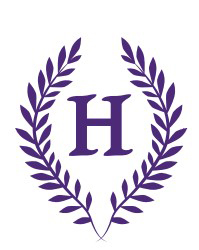English (Including Reading and Spelling)
Our Writing Lead is Miss R. Campbell.
Our Reading Lead is Mrs J.Macfarlane.
Here at Heatherside Junior School, books are at the heart of our curriculum and the Library is at the heart of our school. During their time at Heatherside, children will study books from a range of authors; analysing and imitating their writing styles. Through carefully sequenced lessons, children will produce ambitious writing outcomes inspired by the texts that they have read. The blend of author studies; Let's Think in English lessons; creative writing lessons and non-fiction studies, result in children being reflective writers with a broad vocabulary.
Here are our some of our Dream Libraries...
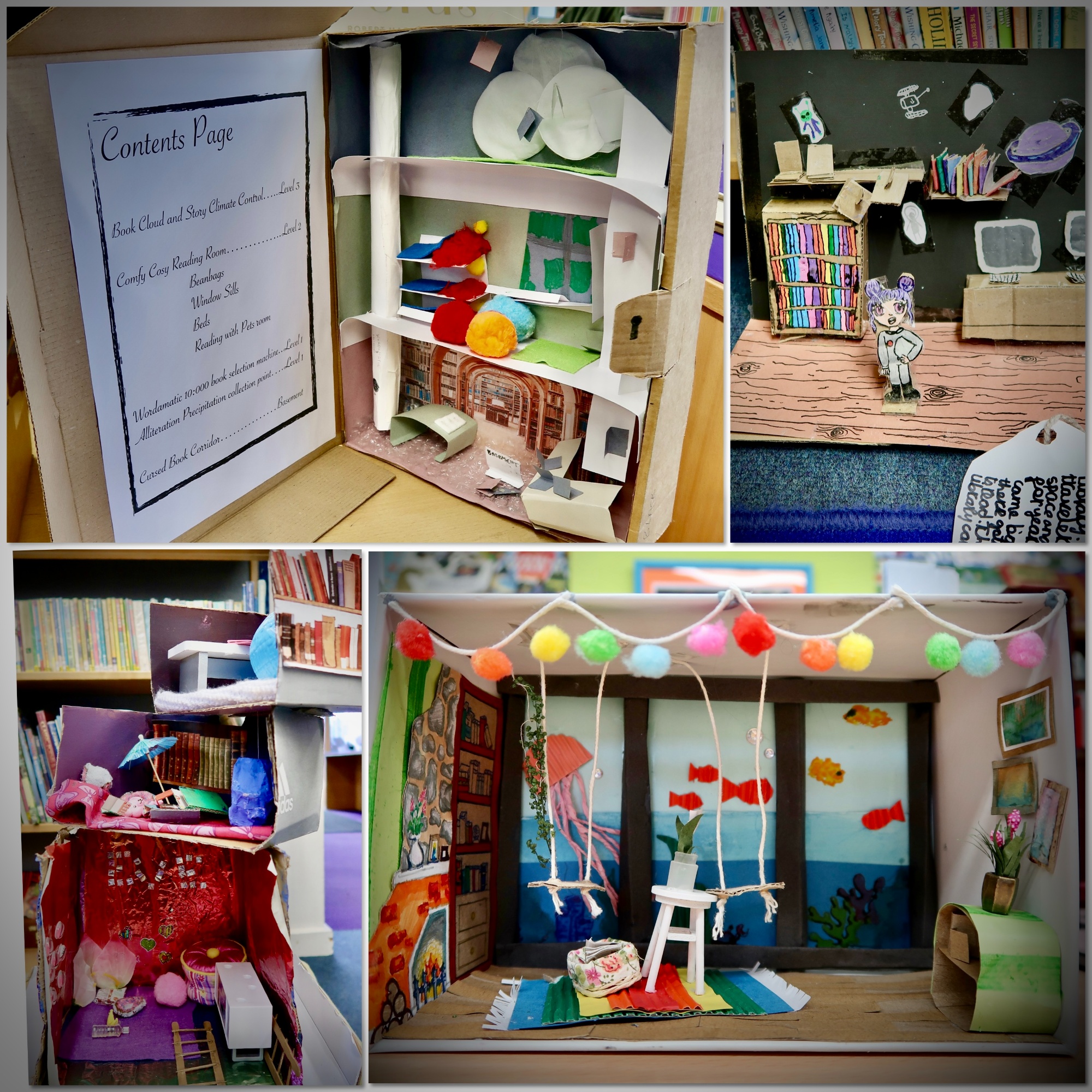
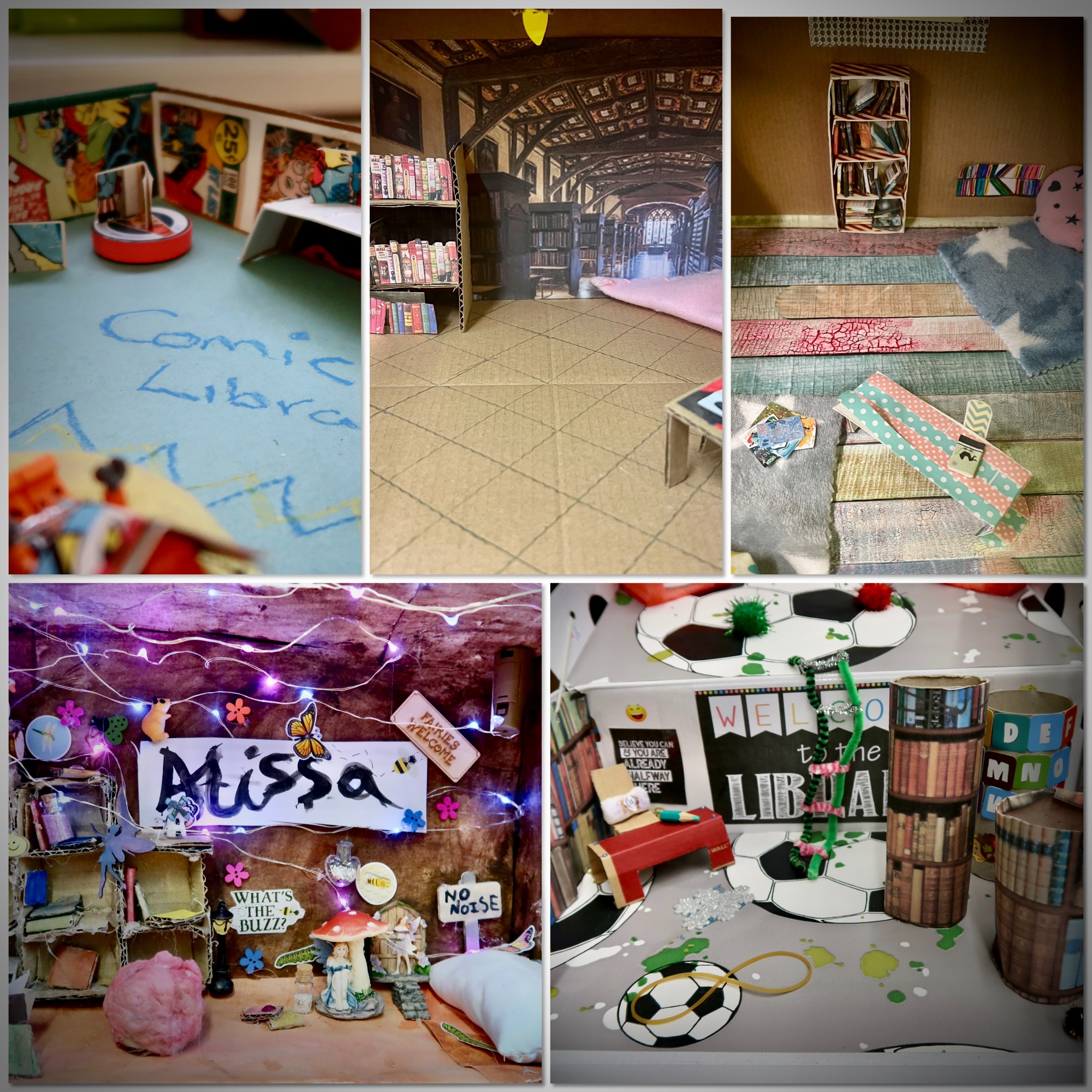
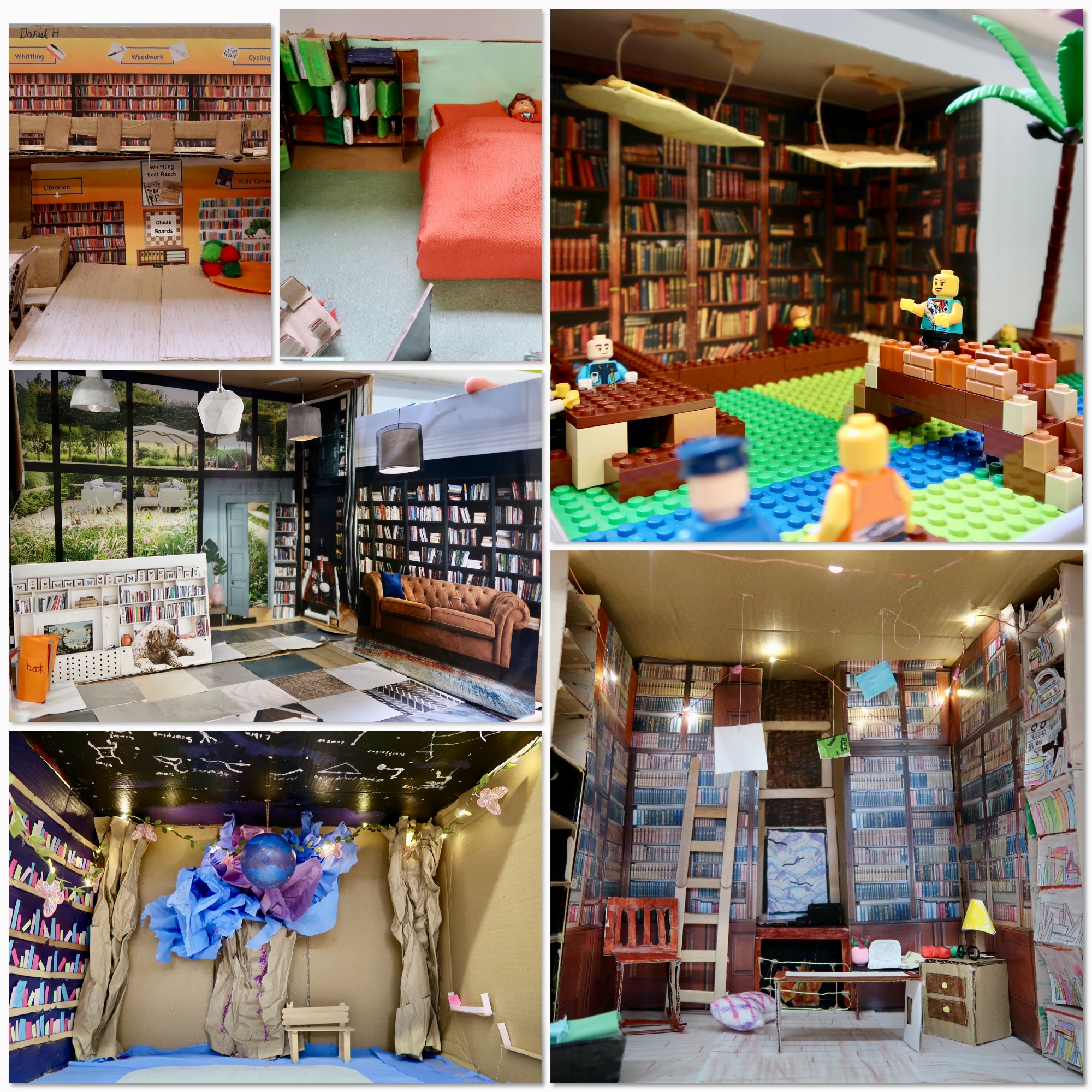
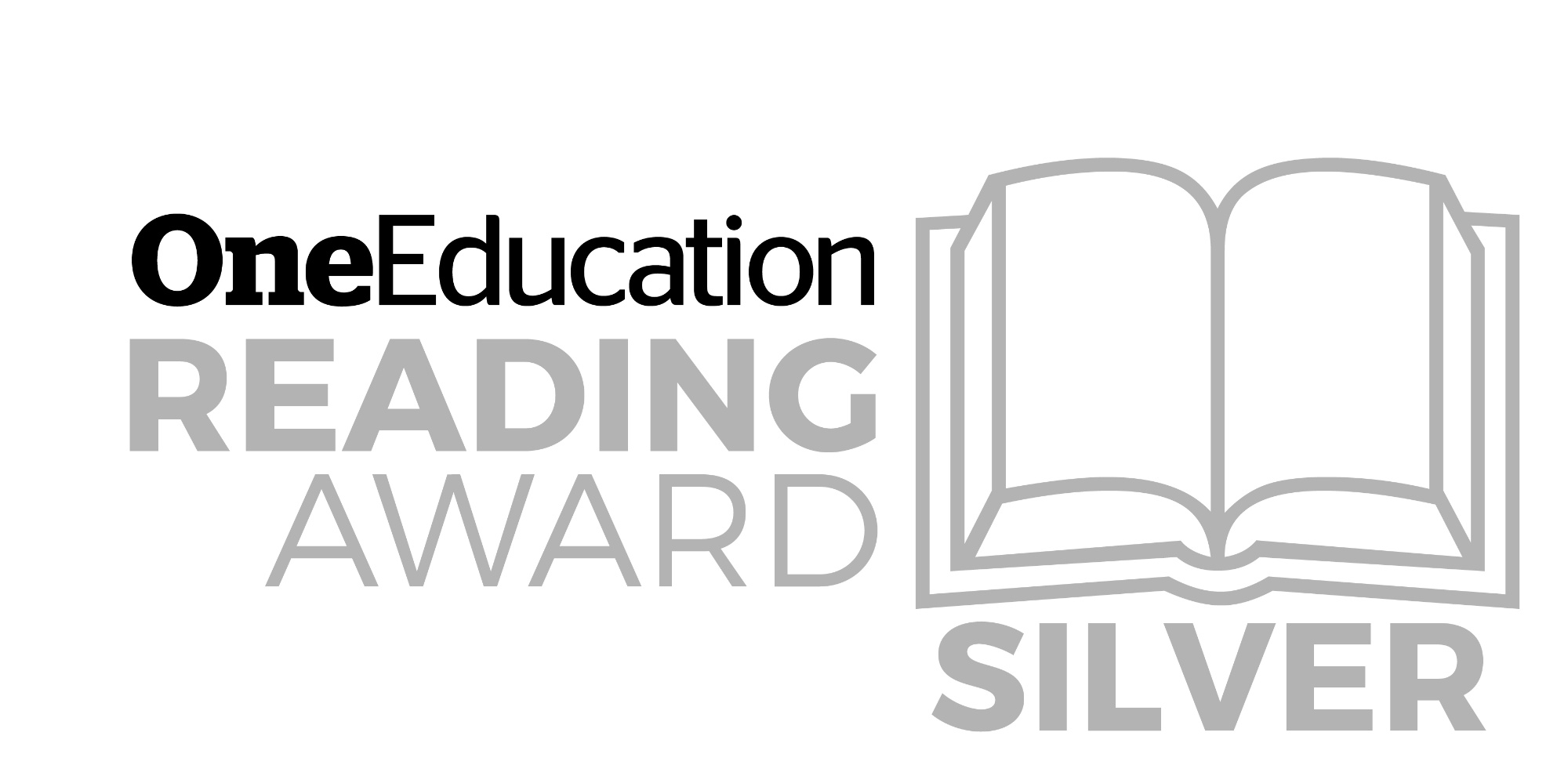
Reading Curriculum Statement
INTENT
We recognise that learning to read is one of the most important things that children can learn in school as it is fundamental to accessing all areas of learning and functioning in today’s society. Therefore, reading is given a high priority at Heatherside Junior School, enabling the children to become enthusiastic, independent and reflective readers. By the time children reach the end of Year 6 we want them to read fluently and with confidence across all genres so that they are fully prepared to successfully deal with the challenges presented at the next stage in their education. We aim for all children to be able to make links between the texts they have read and to be aware that reading extends beyond a book. Our belief is that children should be encouraged to develop their own opinions, which will help develop a love of reading and a thirst to read more.
IMPLEMENTATION
Reading at Heatherside Junior School is carefully planned to achieve the objectives in the national curriculum and teach the children the skills they need to be successful readers, focusing on the reading domains:
- Use a range of strategies, including accurate decoding of text, to read for meaning.
- Understand, describe, select or retrieve information, events or ideas from texts and use quotation and reference to text.
- Deduce, infer or interpret information, events or ideas from texts.
- Identify and comment on the structure and organisation of texts, including grammatical and presentational features at text level.
- Explain and comment on writers’ use of language, including grammatical and literary features at word and sentence level.
- Identify and comment on writers’ purposes and viewpoints, and the overall effect of the text on the reader.
- Understand and discuss themes and genres within and across texts.
Focused reading objectives are taught through English lessons, guided groups and whole class Guided Reading lessons. Children have the opportunity to study in detail a range of books and genres, including author studies and non-fictional studies. As children progress through the school the complexity and length of the high-quality fiction and non-fiction texts used increases as does the expectations of the children’s ability to use the reading domains. The books and texts are carefully chosen to link with other areas of the curriculum, where appropriate, and build on prior learning and skills. Carefully constructed Let’s Think in English lessons provide opportunity for discussion and ‘deep thinking’ to develop higher order reading skills.
Ongoing teacher assessment monitors individual progress and attainment and twice a year, standardised NFER reading tests are used to support validation of teacher assessment, identify any further support needed for children and inform planning for the subsequent year.
Every child coming into the school is assessed to determine their reading level. Pupils who need to be read with more frequently or require intervention are identified through further assessments and appropriate support given. Children who are still acquiring their phonics knowledge (up to and including level 5) are provided with a phonetically decodable reading book- see ‘Phonics at Heatherside Junior School’ for further information. When confident with their phonics, children follow the coloured book bands in order to give them a range of text types at a suitable pitch which they can read independently. The colour-band book selection is ample and has been updated with a range of high-quality texts to suit all readers. The selection covers a diverse spread of topics, both fiction and non- fiction, thus ensuring our commitment to inclusion and representation.
We are fortunate enough to have a very well-stocked library which provides an excellent facility for children to develop their enjoyment of reading and is at the heart of our school. Children are able to visit the library twice a week and our librarian guides pupils in finding suitable, enjoyable, challenging books to take home. Reading Champions in each class work closely with the School Librarian to promote reading in a variety of ways. Each year, a variety of enrichment activities occur which help support and develop pupils’ reading aloud and love of reading such as Author Visits and World Book Day.
IMPACT
We believe that reading is the key to all learning and that the impact of our reading curriculum goes beyond the results of statutory assessments. As they move through the school, children develop their fluency and comprehension whilst accessing a range of texts, with support and independently. Our teacher assessments and standardised tests allow us to measure individual progress and attainment. Our pupil progress meetings allow us to identify and implement additional support for those that need it. The Reading Champions, Librarian, and Reading Lead will discuss current reading trends and interests whilst promoting pupil voice and choice. When they leave us, we want children to possess the reading skills and love of literature which will help them enjoy and access any aspects of learning they encounter in the future.
Writing Curriculum Statement
INTENT
At Heatherside Junior School we understand that the acquisition and development of language is an integral part of a child’s education. It is through Writing and Spoken Language that children gain access to the wide and varied curriculum available to them. The skills that children acquire during this time are essential life skills. Our aim is to give children knowledge and understanding of English spelling, punctuation and grammar as well as the abilities necessary to use language confidently and creatively in a wide range of contexts. We intend for all children to be reflective writers who can analyse and deconstruct their own work, as well as the work of others.
Teachers have high expectations and aspirations for all of the children in their class and take into consideration the individual child, their attainment and needs. Teachers aim to include all pupils fully in all English lessons and support children through quality first teaching. Some pupils may require additional scaffolding or support through an individualised programme in the main part of the lesson.
Through the teaching and learning of writing, we aim to create writers who can:
- Vary sentences for clarity, purpose and effect.
- Write with technical accuracy of syntax and punctuation in phrases, clauses and sentences.
- Organise and present whole texts effectively, sequencing and structuring information, ideas and events.
- Construct paragraphs and use cohesion within and between paragraphs.
- Write imaginative, interesting and thoughtful texts.
- Produce texts which are appropriate to task, reader and purpose
- Select appropriate and effective vocabulary.
- Use correct spelling across their writing.
- Write in a legible style, with accurate and consistent letter formation and joins.
IMPLEMENTATION
The English curriculum is taught by studying a high-quality text where writing opportunities are derived from this. Each unit the children have the opportunity to develop an understanding of the texts through reading comprehension exploring the key themes, events, vocabulary and plot and then we use the ‘Winning at Writing’ stages of writing to structure the writing journey of our units. These are: Reading as writers stage, Idea generation stage, Planning stage, Drafting stage, Editing stage and Proof-reading stage. Occasionally, the children will have the opportunity to publish and perform their finished piece to an audience. This allows them to experience all of the stages a writer has to go through.
Modelled, shared, guided and independent writing are evident throughout this sequence and support both independent and groups of children, following teachers’ formative assessments. Assessments inform shared writing and informs the groups that are needed for guided writing. Stages do not have a time frame. Although rich texts will be used as a stimulus for the writing sequence, a range of texts is used throughout alongside the main text to support the learning of the key concepts.
Pupils are taught the National Curriculum grammar objectives within the study of these texts. Year 6 will receive some additional punctuation and grammar lessons.
Pupil work is not differentiated by task. Instead, children who require more support are provided with additional scaffolds to enable them to access the learning (such as working with concrete resources for longer, use of Clicker6 to record their work, use of Colourful Semantics to help structure sentences or being provided with focused pre-teaching) and children who grasp concepts quickly will be challenged to think about particular aspects more deeply, within the same curriculum content. Guided writing sessions are used to target specific needs of both groups and individuals
Year group teachers plan together as a team. Teachers make effective use of flipchart and whiteboards to model concepts to children using carefully designed teaching slides. Explicit teacher modelling of strategies and procedures through worked examples, with the teacher ‘thinking out loud’, forms an essential scaffold for pupil learning. Key questions are used throughout lessons to support development of understanding. Teachers regularly use precise questioning in class to test conceptual and procedural knowledge, and assess pupils regularly to identify those requiring intervention so that all pupils keep up.
Regular Let’s Think in English lessons and pedagogies are used as a driver to promote discussion and deep thinking in English. Let’s Think in English draws on research by Piaget and Vygotsky that young people learn best when exploring ideas together. The lessons are based on structured challenge and include the development of understanding through discussion (social construction), problem-solving (cognitive challenge) and structured reflection (metacognition) which makes pupils more aware of their thinking processes and how they think most effectively. The lessons stimulate the reasoning patterns which underpin deeper understanding of English relating to the writer’s intentions narrative structure, figurative language, symbolism, genre, etc.
Spelling: Children are taught using the Spelling Shed scheme which includes all the required patterns and rules from the National Curriculum. The spelling programme includes five main components: understanding the principles underpinning word construction (phonemic, morphemic and etymological); recognising how (and how far) these principles apply to each word in order to learn to spell words; practising and assessing spelling; applying spelling strategies and proofreading.
Teachers refer to the spelling pattern during writing opportunities where appropriate, ensuring children have plenty of opportunities to embed their learning and to regularly apply this in context. Teachers check children progress using a range of strategies: low steaks regular quizzing, formal end of unit tests, standardised NFER spelling tests and evidence in their writing.
IMPACT
Teachers assess children’s writing daily in their lessons through Assessment For Learning, in the form of self and peer assessment. Each half term children complete a writing assessment. Teachers will assess this work against key performance indicators for the specific year group. The formal recording of learners’ progress is captured at the end of each term and tracked on an internal tracking system. Leaders analyse the writing data to look for trends and areas of concern or success – this is supported through lesson observations, book looks and pupil progress meetings.
Our teacher assessments and standardised tests allow us to measure individual progress and attainment. Our pupil progress meetings allow us to identify and implement additional support for those that need it.
